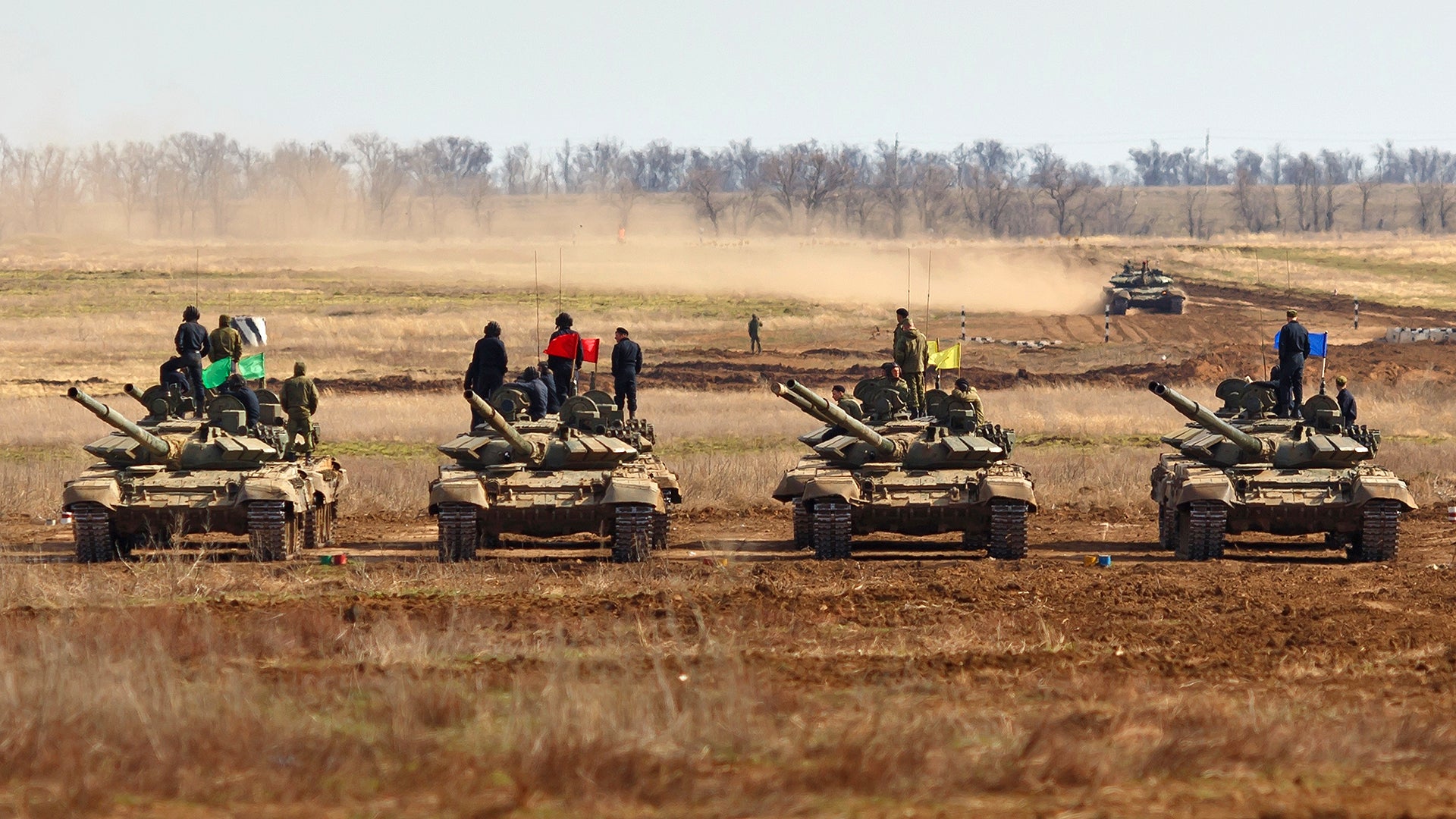Russia’s holds its so called “Tank Biathlon” every August, and it is always entertaining to watch. Competitors from around Russia’s international sphere of influence send their best armor crews to join in these games where they run through rough terrain courses and execute live fire drills. There is even usually at least one “tank ballet” to behold. But now Russian tankers want their NATO counterparts—which they could face off against during a real conflict—to join in the tournament.
Last year’s winning team—from Russia unsurprisingly—threw down the gauntlet for their western tanker brethren this week, wanting to break the tradition of NATO tank crews not participating in the uniquely Russian mechanized Olympics of sorts:
“Unfortunately, tank crews from the EU and U.S. are avoiding taking part in tournaments like this one. It’s time for a face-off with you, guys. Instead of pointing guns at each other, let’s compete with each other on training grounds. Do come. We’ll be waiting for you.”
Colonel Vyacheslav Zhaplov’s winning team from Russia’s Vologorad Region.
Although the U.S. and their NATO partners do indeed have less garish tank competitions of sorts, hats, or should I say helmets off to Russia’s champion team and their challenge. In fact, this is not the first time Russia has invited the U.S. to the Tank Biathlon, they did so formally in 2013, but that was before the invasion of Crimea and the massive geopolitical shift that occurred following it.

Even more so than in 2013, it’s extremely unlikely the U.S. or any of its NATO allies, maybe aside from Turkey, would actually deploy high-end weapon systems on Russian soil, nor invite a symbolic struggle of combat prowess with what is becoming an increasingly bitter foe. Still the idea is actually a noble one.

If the U.S. were formally invited by the Kremlin, and if any technological and safety concerns could be assuaged to some degree—maybe by taking a heavily downgraded export version of the M1 Abrams to the competition—the US should send its best Abrams crews to compete.
There is real value in doing so. If anything else, military-to-military ties can stop conflicts from evolving, or even keep them from happening in the first place all together. Fostering these ties has to start somewhere, and while there had been some Russian-US military cooperation during the two decades that followed the end of the Cold War, even those limited overtures are now a distant memory in what has become a new Cold War of sorts.

Even if US crews are preordained to lose, participating in the event can be framed as a gesture of good will, and who cares how Moscow would spin it really? The whole event is clearly superfluous to begin with, but the potential for a tiny spark of good natured competition and socialization among US and Russian forces isn’t.

There will be some that would say the U.S. or its NATO partners should have nothing to do with Russia’s military considering its actions in Syria and Ukraine. That is a fair argument, but disengagement never seems to solve anything, and a little good natured competition between tanker crews from opposing nations is as good a reminder of what’s at stake in a major conflict in Europe as any other. There is plenty of precedent for this sort of thing as well. For instance, the U.S. has invited China to its RIMPAC exercises multiple times, even during tense times between the two countries and other allies attending.
With that in mind, I say let the games begin!
Contact the author: Tyler@thedrive.com
